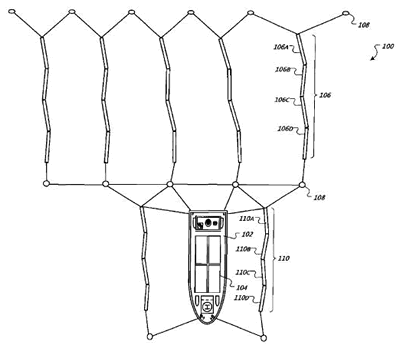Google recently published a patent application for a floating platform-mounted computer data center.

It can be beneficial to distribute computing power closer to users. As such, data centers may be moved closer to users, with relevant content sent from a central facility out to regional data centers only once, and further transmissions occurring over shorter regional links. As a result, every request from a user need not result in a transmission cross-country and through the internet backbone--network activity may be more evenly balanced and confined to local areas. Also, transient needs for computing power may arise in a particular area. For example, a military presence may be needed in an area, a natural disaster may bring a need for computing or telecommunication presence in an area until the natural infrastructure can be repaired or rebuilt, and certain events may draw thousands of people who may put a load on the local computing infrastructure. Often, such transient events occur near water, such as a river or an ocean. However, it can be expensive to build and locate data centers, and it is not always easy to find access to necessary (and inexpensive) electrical power, high-bandwidth data connections, and cooling water for such data centers.
Source

No comments:
Post a Comment